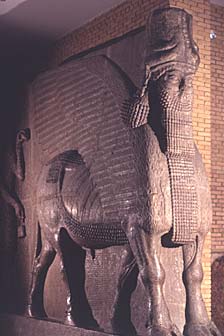IMAGINE FREE IRAQ
Kanan Makiya, an Iraqi dissident | 12.02.2003 16:41

IMAGINE FREE IRAQ
Iraq is rich enough and developed enough and has the human resources to become a great force for democracy and economic reconstruction in the Arab and Muslim world.
But most Arabs are in a state of denial. The gulf that opened up between Iraqis and the rest of the Arab world that began with the 1991 Gulf War has reached a kind of crescendo with the current crisis.
Out of the Iraqi opposition - as difficult and fractious as it may be - could emerge a new kind of Arab politics. One that I believe is far healthier than the politics that dominates the Arab world today.
Since 1967, Arab political culture has largely been dominated by Arab nationalism of one form and another. This has been an obsession to the exclusion of everything else.
And today, the spectrum of what is politically possible to talk about in Arab politics runs from Palestine at one end to Palestine at the other, with no room for the plight of the Iraqi people.
Click here to read or send comments
But, if you live in Iraq, Palestine is not the central question of your life - your home-grown tyrant is.
Part of the driving force of Arab politics since 1967 is the attribution of all of the ills of one's own world to either the great Satan America or Israel.
Arab and Muslim resentment of the West is grounded in many grievances, some legitimate, others less so. Without question, the West has blundered in its dealings with the Arab world.
But the kind of thinking in the Arab world today has led to an impasse, where people are blind to failures close to home - specifically the absence of democracy among Arab nations
Arabs politics is a self-destructive politics that has no way forward - it is epitomised by the Palestinian suicide bomber.
Arab fears
America's latest policy towards Iraq has sparked fear and criticism in the rest of the Arab world - almost all non-Iraqi Arabs seem to think military action will be an unmitigated disaster.
Some commentators warn that a US backed war in Iraq will cause the Arab street to rise up in anger. But this much vaunted 'Arab street' is a fiction - it doesn't exist. It is a creation of nationalist intellectuals of my generation, who lived through war in the Arab world and never learned from the mistakes of the past.
During the Gulf War and, more recently, the Afghan war nothing came of the fears of the Arab world.
All we saw in Afghanistan were people cheering in the streets. I expect Iraqis to do the same - to throw sweets and flowers at the American troops as they enter our towns and cities.
In the long run, however, how the US handles itself will determine the success of this liberation. Much depends on how willing Washington is to follow through with nation building.
We want to see America involved in Iraq for a very long time but I do not support the idea of an American military government, even for a short time. We Iraqis must take the responsibilities of our future into our own hands.
Professor Kanan Makiya, was born in Iraq and now teaches in the US. His books include Republic of Fear, about Iraq, and Cruelty and Silence: War, Tyranny, Uprising and the Arab World. He has been working with the US administration on a model for post-Saddam Iraq.
Professor Makiya was speaking to Kathryn Westcott from northern Iraq.
Kanan Makiya, an Iraqi dissident
 Homepage:
http://news.bbc.co.uk/1/hi/world/middle_east/2751951.stm
Homepage:
http://news.bbc.co.uk/1/hi/world/middle_east/2751951.stm